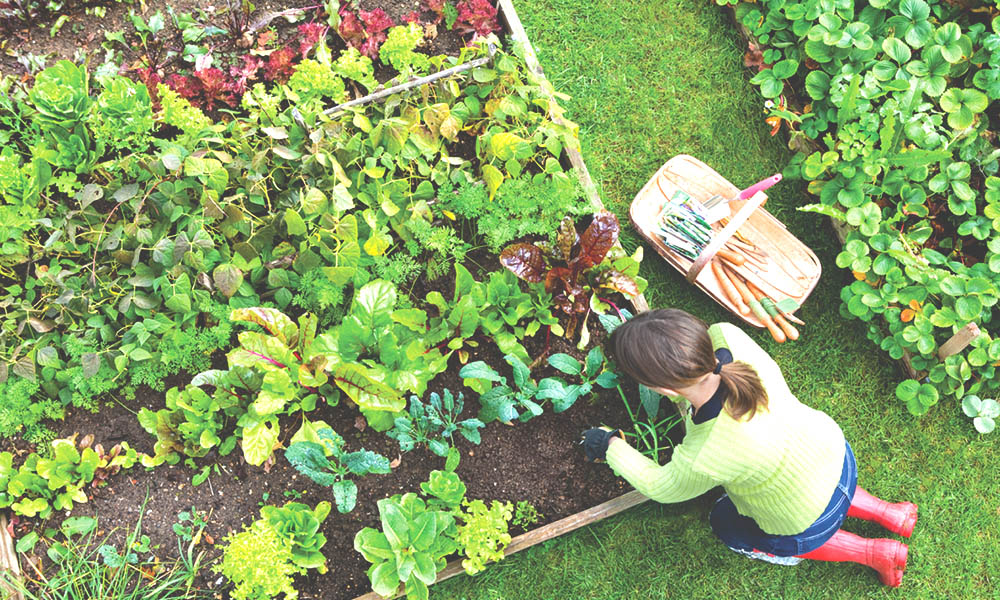The term “sustainable gardening” is used more often and for many people, it leaves behind images of gardens like the jungle, where plants do their work, garden beds are made of baths tubs or rusty wavy sheets, and the only thing you can grow are plants that a long-haired hippy keeps in a grocery store.
For many people, the idea of sustainable gardening is too complicated, mainly due to a lack of understanding of what sustainable gardening means.
Whether you are an experienced horticulturist, a hobbyist, or simply want to know how to take care of your garden, these tips are just a few steps away from starting your journey towards sustainable gardening. Remember that a little effort is crucial when it comes to having a positive impact on the environment, so give it a try!
Create a compost heap
If you have more space, creating your compost heap is a great way to convert food and other organic waste into a rich and healthy fertilizer for your soil. Reuse what you already have, or find something used instead of buying a new compost bin. Be creative and use the old household items in your garden. Try converting cardboard kitchen rolls and waste newsprint into biodegradable pots and pans. Just cut them to the right size and put them directly into the ground.
Mulching
It may seem too easy to be true, but adding bedding to your garden is an important step towards making it more sustainable and ensuring its development. Mulch is a material on the soil surface that can consist of objects such as sawdust, wood shavings, leaves, and grass clippings. The main purpose of mulching is to help maintain moisture in the soil, which means less water for plants. Mulching acts as an insulator between sunlight and soil, limiting water evaporation and protecting the roots of plants from sudden temperature fluctuations. Mulching in the garden also helps to drain water during rain and irrigation, reducing the amount of water needed to give thirsty plants the drink they deserve.
Practice Organic Gardening
The transition to organic farming is an important part of sustainable horticulture. The use of fewer chemicals in the garden is more ecological and profitable. If you produce food for your family, organic horticulture becomes even more important. Start from scratch, creating good, nutrient-rich soil, and add natural fertilizers to renew it. If you find pests or plant diseases in your garden, treat them with organic solutions.
Control Pests with Companion Planting
Pests and diseases will always be a problem in the backyard, and what chickens manure cannot control should be controlled in more conventional ways. Home insect and fungus sprayers are easy to prepare and use, and many people also have their recipes that can be found on the internet.
However, many home remedies don’t live long and should be used immediately after production.
Companion plants are also a useful way to protect against pests and can attract beneficial insects that eat badly. Many plants can be used as companion plants depending on the style of your garden and what you want to avoid getting caught, and there are some very good books detailing the types of plants available.
Reuse and recycling of old items
From vases to old rakes, there are many things you can reuse and give new life. Producing these products is very environmentally friendly, so it is important to use them as much as possible to achieve sustainable development in your garden.
Recycling items that are indoors for outdoor use can also be a good way to promote sustainability in your garden.
Plant Trees
When thinking about planting a new tree or rejuvenating your garden, you should consider the advantages of a well-arranged tree in terms of the amount of sunlight and the direction of the sun in your home. Shady trees can have a significant cooling effect on a well-positioned house, resulting in savings in cooling and heating, just as hard floors, concrete or hard surfaces can be replaced with strong grass floors that can reduce reflected heat to 15 degrees.
In conclusion
Healthy soil is a key element of plant health. After all, it is what plants grow on, so poor soil is detrimental to their viability. Building healthy soil is not only good for plants but can also bring other benefits. A balanced garden soil protects moisture, prevents erosion, and much more. Another thing you need to know about the sustainability of the soil in your garden is that it helps reduce the costs that every gardener will spend on maintaining the landscape.

